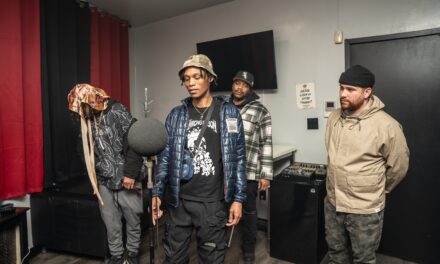What began as a magical night of music at a Coldplay concert in Massachusetts has exploded into a viral internet firestorm—one that blends pop culture spectacle, corporate controversy, and digital ethics. The now-notorious incident, dubbed the “Coldplay Kiss Cam” scandal, has thrust two high-level executives—Andy Byron and Kristin Cabot—into the center of an unwanted media circus.
The Viral “Coldplay Kiss Cam” Moment
During Coldplay’s performance of The Jumbotron Song, cameras scanned the crowd and landed on a couple tenderly embracing. But when they realized they were on the stadium’s big screen, their reaction was anything but casual. The pair quickly pulled apart, attempted to cover their faces, and awkwardly ducked out of frame. Even Coldplay frontman Chris Martin couldn’t help but joke: “They’re either lovers… or just incredibly shy.”
Turns out, “lovers” might have been the most accurate label.
Internet Sleuths Identify Andy Byron and Kristin Cabot
Within hours, internet detectives had allegedly identified the couple as Andy Byron, CEO of billion-dollar tech firm Astronomer, and Kristin Cabot, the company’s head of HR. According to The New York Post, both are married to other people.
Their sudden spotlight on the Coldplay Kiss Cam rapidly spiraled. What was once a lighthearted moment became global gossip, saturating TikTok, X (formerly Twitter), and Reddit feeds with memes, conspiracy theories, and intense public scrutiny.
The Fallout: Viral Fame Meets Real-World Consequences
As the story gained momentum, a supposed apology letter from Andy Byron circulated, expressing regret:
“What was supposed to be a night of music and joy turned into a deeply personal mistake played out on a very public stage…”
But in a wild twist, Astronomer later denied the letter’s authenticity, telling TMZ it was entirely fake. Meanwhile, Byron’s wife reportedly scrubbed his name from her Facebook profile, and both executives faced a deluge of comments—some supportive, but many vicious and misogynistic, particularly targeting Kristin Cabot.
In classic internet fashion, the backlash wasn’t evenly distributed. Kristin Cabot was quickly branded with cruel nicknames like “Chief Legspreading Officer,” revealing how online shaming still disproportionately targets women. It’s a reminder that viral moments can carry very real gendered consequences.
What Does Astronomer Do? Inside Byron’s $1.3 Billion Software Company
The now-viral Coldplay Kiss Cam clip showed the two executives visibly startled when they appeared on the stadium’s Jumbotron. Byron quickly ducked his head, while Cabot covered her face—a reaction that only fueled speculation online.
Byron, formerly an executive at Cybereason, became CEO of Astronomer in 2023 following its merger with Elementl, a startup known for Dagster, a leading workflow orchestrator. Astronomer has since emerged as a top player in the DataOps space.
The company provides a platform for data engineering teams to plan, test, and scale ETL (extract-transform-load) workflows—critical for modern analytics and AI infrastructure. Originally founded in Cincinnati in 2018 and now headquartered in New York City, Astronomer has raised over $200 million in venture capital. In May 2025, it closed a $93 million Series D round led by Insight Partners, bringing its valuation to approximately $1.3 billion.
Kristin Cabot’s Role at Astronomer – And Byron’s Controversial Leadership Past
Kristin Cabot joined Astronomer in November 2024 and brought with her a strong background in tech HR leadership, having held senior roles at multiple companies. Known internally for advocating inclusion and organizational wellness, Cabot was recruited to shape Astronomer’s people strategy.
However, following the incident, questions have emerged about the nature of her relationship with Byron. Unverified internal sources suggest the two may have a personal relationship that was not disclosed—potentially raising concerns about compliance with company policies regarding workplace relationships.
The incident has also prompted scrutiny of Cabot’s past LinkedIn posts on trust and leadership, which are now being reexamined through a different lens.
Neither Kristin Cabot nor Andy Byron has made any public statement (even though some tried to put words in his mouth).
Meanwhile, former colleagues of Byron—speaking anonymously—have described his previous leadership style as “authoritarian and intimidating” at prior companies, although no formal complaints have been filed.
Power, Privacy, and Reputation in the Digital Age
Astronomer has not issued any public comment on the incident.
The episode—where personal and professional worlds collided under the glare of a stadium camera and the global internet—has reignited debate over power dynamics in high-pressure workplaces, and how much public exposure can impact the reputation of senior executives in the tech industry.
It also raises questions about Byron’s judgment. How could someone in his position not have foreseen the risks of such a public display in today’s hyper-documented world?
From Jokes to Bets: The Coldplay Kiss Cam Becomes a Cultural Phenomenon
As the meme storm surged, U.S. betting sites even listed odds on whether Andy Byron would be fired or if either party would file for divorce. What started as a clip from a Coldplay concert turned into a global meme, a marketing tool (used by NEON Films to promote their thriller Together), and a case study in digital overreach.
Outlets like 404 Media called the event another example of TikTok’s toxic sleuthing culture.
“‘TikTok, help me find him’ is such a meme now,” they wrote, highlighting the dangers of public surveillance disguised as internet fun.
Whether it’s a dancing security guard, a far-right extremist, or a potentially unfaithful executive, the same crowd mentality emerges: seek, expose, ridicule.
This opens up a dual ethical and legal question: first of all, is it legal to be filmed and broadcast worldwide? At an event like a concert, the answer is generally yes—not because it’s automatically or universally permitted, but because by purchasing a ticket, attendees typically agree to a set of terms and conditions that include consent to be recorded and shown on large screens.
The second issue concerns how easily individuals can be identified and then fed to the chaotic and unreliable world of the internet. In this case, it involved a CEO of a well-known company, a public figure with an already significant online presence. That doesn’t justify the public shaming, but perhaps it explains how easily it happened.
However, if a similar situation were to happen to someone less well-known, less prepared to withstand such an impact, theethical implications would likely take on a very different weight.
In the end, Coldplay’s The Scientist lyrics—“Nobody said it was easy”—have become the bittersweet anthem of this modern-day morality play. Behind every viral video is a real human life, and in this case, two professionals caught in the brutal glare of digital infamy.
The Coldplay Kiss Cam scandal involving Andy Byron and Kristin Cabot is a sharp reminder: in the age of smartphones, Jumbotrons, and AI-powered facial recognition, your most intimate moments can become global headlines in seconds.
So if you’re going to hug your coworker-turned-lover at a concert, either own it—or brace yourself for your next boardroom meeting to start with a meme.





